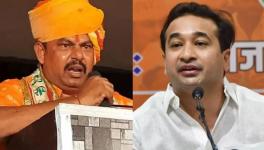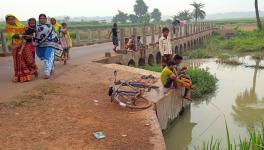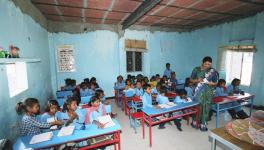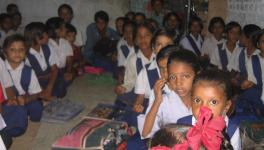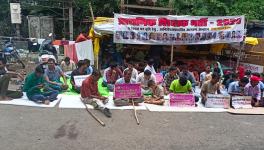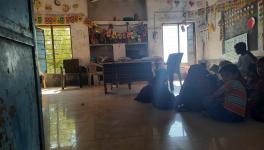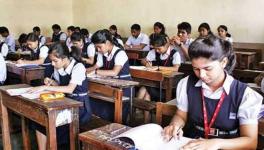Ranjitsingh Disale: This ‘Global’ Zila Parishad Teacher Changed the Way Students Learn
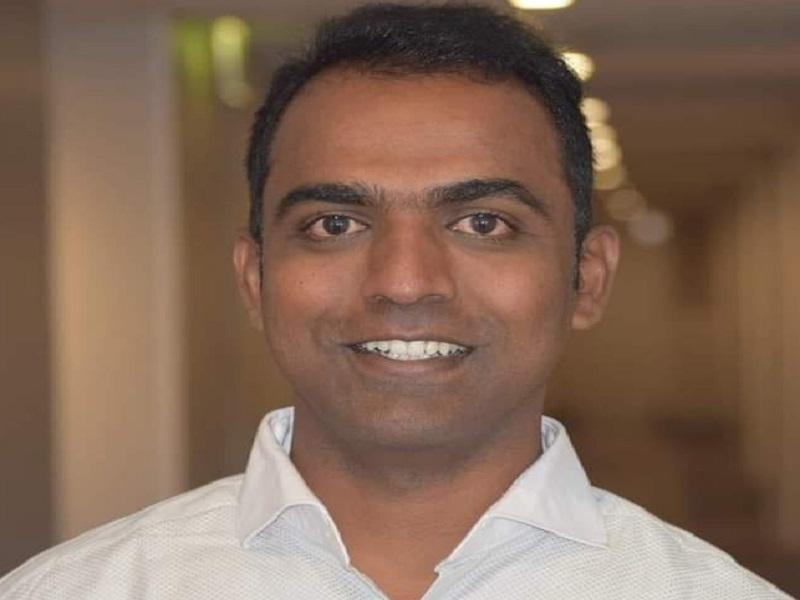
Mumbai: In 2016, a zila parishad teacher, neglected by his professional community, developed a system of coding which would help students learn through audio and the visual medium at Khandavi village in Barshi tehsil, Solapur, southern Maharashtra.
“One day I’d gone to Solapur city where I saw a shopkeeper using a QR code (Quick Response code: a matrix barcode). It is where I thought of developing a similar system for students,” said Ranjitsingh Disale. At the time Disale did not know that this brainwave would not only change how his school functioned, but that he would benefitting the entire Indian education system.
“The basic idea is about the accessibility of education. We need to understand that education is not a privilege. It is the right of every child and she or he should be able to get it anywhere, easily. The QR code is an attempt in this direction,” said Disale.
Initially, the 32-year-old recorded poems and lessons from language subjects. He found that students were responding well, with the system improving their understanding of the subject. Later, he developed a project and submitted it to the primary education department of Maharashtra. In 2017, the state adopted the system and started using it for primary school students across the state.
“It is generally seen that government schools fall short in imparting quality education. But if you allow teachers to experiment then you will find that the quality of government schools can be at par with private schools. This QR code system helped to improve that image,” said Disale.
This week, Disale won The Global Teacher Prize and shot to the national limelight. He was applauded for not just winning the prestigious award but also for sharing the half of his prize money – $1 million – with nine other finalists from different countries. “I came in contact with these people and saw their work. It is amazing. This money will help them strengthen their projects. I think it is my responsibility to help them,” said Disale.
In 2017, the software giant Microsoft took note of his technological innovation and selected it alongside 300 innovative projects from the world over. It was a recognition of the work he was doing, further spurring him on. He is now working with Microsoft on a project which is developing the school syllabus for 11 countries on similar lines.
Disale did not stop there. To strengthen their understanding and help them explore the world, Disale began on another interesting project called 'Virtual Field Trip'. This project facilitates interaction with students from more than eight different countries. Students get in touch with each other over video conferencing and share their experiences, the basics of language and work on pronunciation.
“The idea behind the virtual field trip is to connect students from all the world. To give them values of understanding and respecting each other. It helps to develop the students’ views,” he said.
Disale is also working on a project titled 'Let’s Cross The Border'. It brings together students from eight countries across the world from areas recognised as conflict zones. India and Pakistan, Iran and Iraq, Israel and Palestine, America and North Korea are the eight countries. “This is a six-week programme. Basically, we connect students from these countries and try to sow the seeds of peace and understanding among them. After ten to twenty years, some of these students will reach new heights in their countries and be decision makers. At that time, they should work on defusing conflicts, which is our aim – to create good citizens who respect harmony,” said Disale.
This week, Disale won a prize of Rs 7 crore. He has already put in his share into different projects, and will donate 30% of into an innovation fund for teachers. Teachers who come up with ideas and need money to develop them further will be funded. The remaining 20% will be given to the ‘Borders without Conflict’ initiative. “Why would I need money? I am getting a salary and if I need money for any project, I am sure people would donate for it,” said Disale.
Ranjitsingh believes that teachers should learn, adopt new technological innovations and use them in their daily teaching life. “The world is changing due to these new technologies. We need to learn and also let teach our students to learn them. Exploring them will build the confidence of our students,” said Disale.
Get the latest reports & analysis with people's perspective on Protests, movements & deep analytical videos, discussions of the current affairs in your Telegram app. Subscribe to NewsClick's Telegram channel & get Real-Time updates on stories, as they get published on our website.









